#albert de morcef
Explore tagged Tumblr posts
Text
I’ve seen a distinct lack of love for the Comte of Monte Cristo (2024) so I’m opening requests for Edmond Dantes/Le Comte de Monte Cristo, Albert de Morcef and Andre de Villefort!
#le comte de monte Cristo#the count of Monte cristo#Pierre niney#Albert de morcef#le comte de monte cristo 2024#andre de villefort#Edmond dantes
41 notes
·
View notes
Text
ça fait plusieurs semaines que je ne pense qu'à vassili schneider jsp mon cerveaux il veut quoi là
#vassili schneider#joseph descamps#albert de morcef#vassili épouse-moi stp je suis célib#je vais tout faire pour toi ptn TOUT#le comte de monte cristo#mixte 1963#nightvyre textpost
8 notes
·
View notes
Text

#- 🦔#- 🦇#memes#our posts#Edmond Dantès#Danglars#Fernand Mondego#Fernand de Morcef#Villefort#Gérard de Villefort#albert de morcerf#meme#tcomc#the count of monte cristo 2024#the count of monte cristo#le comte de monte cristo 2024#le comte de monte cristo
26 notes
·
View notes
Text
My current trend with fanfictions writing is
Person A ends up in a situationship with Person B. Person B is the child of Person A's first love.
Of course, this NOT accidental.
1 note
·
View note
Text
In adaptations of THE COUNT OF MONTE CRISTO, the character of Haydée is almost always removed. The unabridged story is very long and it does make sense to streamline some things, but I think that versions which remove Haydée (especially if they include a second romance or substantial reunion with Mercédès) lose some of the point of the story.
In the original, dastardly deeds and betrayal by Fernand (now Monsieur de Morcef) are brought to light with Haydée as a witness. His wife (Mercédès) and son (Albert) flee France and he kills himself after they depart. Even though Mercédès is now theoretically free to pursue a relationship with the Count of Monte Cristo (formerly Edmond Dantès), and he knows of her change in circumstance and could try to follow her, instead he looks upon Haydée, his ward (now a young woman), and realizes there might be a “second Mercédès” and he might be happy with Haydée instead. She’s already half in love with him and he hadn’t noticed before because he was too caught up in the idea of having lost Mercédès. She's an adult by 19th century standards by the end of the book, and might even be an adult by modern ones at that point.
Part of the point is that through the act of single-mindedly fixing himself upon revenge against those who threw him in prison for the crime of holding a letter and for daring to love a woman who was coveted by her cousin, Edmond Dantès died in the Chateau D’Ilf prison and the Count of Monte Cristo rose in his place, like a strange vampire. Edmond who loved Mercédès is gone, irrevocably, and the things which could have satisfied him are likewise lost. Instead there is only the Count, who was only pursuing the cold comfort of vindication and success, measured by the wreckage of his enemies and the unhappiness of their children. He sees her one more time, after learning of a terrible death he did not intend, which nevertheless stems from his machinations. Mercédès, also, has been changed into someone who couldn’t be happy with Edmond and makes no moves towards the Count.
Haydée then, is essential, because whether or not they pursue a relationship beyond that of rescuer and ward, she represents the possibility of new connections, the idea that the Count can be happy even though poor Edmond cannot.
A story which reunites him with Mercédès is one which pretends that the way he was broken will fit the (lesser but still present) ways she was altered, with more than twenty years and completely disparate lives in the gap between them. It’s not a bad story, but it’s not the one the original book was telling.
To be the Count is to be someone who is no longer trying to reclaim the past, but to avenge it. Eventually he becomes someone who is ready to move forward, and letting go of Mercédès while looking forward to the possibility of a different relationship with Haydée is part of that.
155 notes
·
View notes
Text
it won’t let me edit the post but other iconic classic lit gays are albert de morcef and franz d’epinay
5 notes
·
View notes
Text
It's Alexandre Dumas's 220th birthday today, so let's all get together with our ragtag group of swashbuckling friends with impeccable fashion senses and drug a rich kid in a underground island lair in order to stage a kidnapping so you can take revenge on the men who wrongly imprisoned you for EXACTLY 14 years!
#albert de morcef didnt know what was coming#the three musketeers#three musketeers#the count of monte cristo#count of monte cristo#literature#alexandre dumas#literary birthdays
43 notes
·
View notes
Note
Albert de Morcef is a himbo
oh absolutely 100%
31 notes
·
View notes
Text
ok y'all ready for this
The Count of Monte Cristo, but as a YA Fantasy trilogy
(note, this is still all just concept and many fundamental details will probably change a bit if I ever actually write this)
The story takes place among a series of island nations, which had until about twenty years ago all been at war with each other. The current peace is strained and reluctant, but it’s the only thing the younger generation knows. Contributing to that strain is the fact that magic appears to be growing stronger.
Anyone can learn magic, and usually magic practitioners train for years to learn how to properly draw on the spirits of the natural world, but lately more and more untrained people seem to be accidentally performing feats of great magic. It’s as if the nature spirits are pressing right up against the boundary of the spirit world into reality, just waiting to force their way out.
While this is a cause for worry, the worry is alleviated by the one prime rule of magic: spirits cannot physically effect the bodies of humans, just as humans cannot physically interact with the spirits. Magic cannot be used to kill, hurt, heal, or enhance any human in any way, except indirectly through natural forces.
That is, until a holiday across the ocean leads Valentine to meet Haydee, and the Count of Monte Cristo. Haydee performs a feat that breaks the prime rule of magic, putting to question everything Valentine thinks she knows. Something appears to be wrong in the spirit world, but with no way to investigate directly it’s almost impossible to discover what – or who – is causing it.
Over the course of the series Valentine and the other kids uncover a mystery that traces from them, to their parents, to the Count of Monte Cristo. Though he’s not a narrator of this story, readers familiar with the source material see the Count’s plans from the receiving end, throwing the kids’ lives into chaos before he ever steps into the limelight.
The story is split into three books and narrated by a rotating cast of limited perspective third person narrators. These include:
Valentine de Villefort, our lead narrator. She’s learning traditional magic from her grandfather, who’s paralyzed from illness. She’s shy and reserved and has trouble getting along with her father's new wife, but she hides a quiet intelligence and a desire to right the wrongs she sees. In a flashback scene we see her meet Max, a female soldier on leave from the navy, and the two fall in love.
Eugenie Danglars, the daughter of a banker who wishes more than anything to be an artist. She has trouble connecting with others, except through music. She’s trying to attend a music school along with her only close friend, Louise d’Armilly, but her father’s past seems to be standing in her way.
Albert de Morcef, the brash and headstrong son of a wealthy military man, who’s used to father’s connections and money solving all his problems. He's fiercely loyal to his friends and family, and genuinely tries to do the right thing, as long as he can figure out what that is. His parents are repeatedly trying to set him up with Eugenie, despite the two having no interest in each other.
Franz d’Epinay, one of Albert’s closest friends and an orphan, the sole heir to his family’s fortune after his father mysteriously died twenty years ago. He left [Paris] a few years back, but now Valentine’s family has offered to adopt him into their family line, a move that would restore his place in society (and make the Villefort’s look good)… if he can closure on his father's death, first.
‘Andrea’, a thief and a criminal working in a chain gang, under an assumed name, alongside their criminal buddy Caderousse. Before long, however, a mysterious benefactor pays off both debts, under the agreement that Andrea will travel to [Paris] to con their way into high society. Why? Andrea doesn’t know, but they’re not going to pass up this chance at a bigger score.
Haydee, the adopted daughter of the Count of Monte Cristo, who she met lost on the streets of a ruined nation. She tells everyone that she has amnesia, that she can’t remember where she comes from or who her parents were, but in reality that’s a lie to disguise her plan for revenge, against the man who betrayed her father, the king, and sold his nation out to his enemies.
#now i need to write it#actually now i need a working title#count of monte cristo#monte cristo YA fantasy#ive had to plot this whole thing backwards which has been exhausting let me tell you#but im finally at the point where i can plot it frontwords and its such a relief
7 notes
·
View notes
Text
Le Comte de Monte-Cristo, Alexandre Dumas (tome 1)
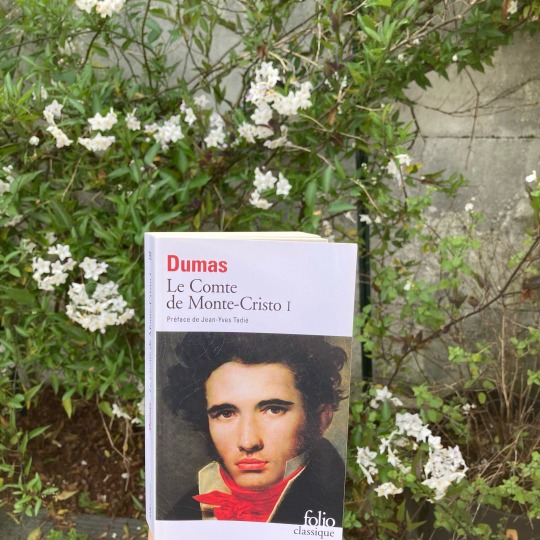
Dans ce premier tome (parce que oui, Le Comte de Monte-Cristo c’est deux fois 700 pages), on fait la connaissance du jeune Edmond Dantès. À 19 ans à peine, il va passer de marin à capitaine du bateau sur lequel il est employé, et projette d’épouser la belle Mercédès, qui l’aime en retour. Mais c’est sans compter sur la jalousie et la cupidité des hommes… Très vite, Edmond se retrouve en prison, accusé de bonapartisme — et donc de trahison. Lorsqu’il parvient à s’évader une quinzaine d’années plus tard, c’est un tout autre homme. Aux cachots, il a rencontré un vieillard qui l’a instruit, et qui lui a laissé une immense fortune en guise d’héritage. Dès lors, Edmond disparaît, et le comte de Monte-Cristo prend sa place. Il apprend que son père est mort, que Mercédès s’est mariée avec un autre, et que les hommes qui l’ont trahi ont fait fortune. Monte-Cristo jure alors de se venger, et peu importe le temps et les ressources que cela lui demandera…
Ça fait pas mal de temps que je n’avais pas lu de littérature classique ; en fait, il y a presque un mois j’ai fait un super conseil à une super cliente, et bim, le lendemain j’ouvrais Monte-Cristo. Ce gros pavé de 700 pages m’aura duré trois semaines (rien que ça).
C’était super, j’ai vraiment adoré ! J’ai redécouvert avec joie les classiques, qui n’ont décidément rien à voir avec les romans contemporains (même s’ils peuvent être géniaux aussi), ne serait-ce que par le style !
Le Comte de Monte-Cristo est vraiment très dense, et il s’y passe énormément de choses. Parfois ça traîne un peu en longueur (notamment la partie où Monte-Cristo est en Italie et rencontre Albert de Morcef et Franz d’Épinay) ; et parfois, j’en avais un peu assez d’être dessus si longtemps. Mais ça valait vraiment le coup. Dumas est un auteur que j’apprécie beaucoup, même si je ne l’ai pas énormément lu ; c’est un écrivain archi prolifique, et très très ancré dans les faits historiques et la politique de son époque ! Ainsi, non seulement on a un très bon roman, mais aussi une bonne idée de ce qu’était la France en 1815, entre Napoléon et le roi qui se disputaient le pouvoir ! Et parmi tant d’autres choses, on retrouve aussi cette « mode » de l’orientalisme très en vogue en Europe au XIXe siècle ; on découvre également les rouages de cette haute-société parisienne, et c’est très intéressant.
Je pense que je vais laisser un peu retomber ma lecture avant d’entamer le deuxième tome (j’ai besoin de faire une petite pause). Mais ça me rassure, parce que j’avais peur de m’être lassée des classiques ; ou pire, de ne pas pouvoir conjuguer lecture de classiques (qui sont plus longues que mes lectures d’ordinaire) et travail en librairie. Mais c’est carrément faisable !
18/09/2021 - 11/10/2021
#livre#livres#book#books#littérature classique#littérature française#alexandre dumas#le comte de monte-cristo
6 notes
·
View notes
Text

hello humans , i’m siri ( i was half asleep when i chose alias but now ... we’re marrying to it , it’s okay , we’re okay . ) ( and i just realized how bad it was to greet you all as humans and then say i’m siri , wow ) ignore my monologue here to be honest . moooving on , under the cut i’ll write some info on my child rhett barlowe .
matthew daddario. cis male. he/him. / rhett barlowe just pulled up blasting bruises by lewis capaldi — that song is so them ! you know, for a twenty-seven year old actor, i’ve heard they’re really -reserved, but that they make up for it by being so +loyal. if i had to choose three things to describe them, i’d probably say drinking black coffee like it’s water, runs before the sun is out, worn out book folded into his back pocket . here’s to hoping they don’t cause too much trouble ! ( siri, 21+, cst, she/her )
career claims: henry cavill
BASICS
FULL NAME: rhett barlowe
NICKNAMES: none
AGE: 27
GENDER: cis male
BIRTHDATE: may , 1st
SEXUAL ORIENTATION: heterosexual
PLACE OF BIRTH: cheshire , england
OCCUPATION: actor
HEIGHT: 6′3′’
WEIGHT: 203 lbs
BACKGROUND
born to a paralegal and a gym owner , rhett’s the youngest of 4 boys . they were pretty much like having 4 tornados running around the house :// bless mama barlowe’s heart . overall a very upper-middle class home .
they were all athletic since they were kids , they all played rugby and two of his brothers made it pro and another one is a professional soccer player . rhett was a fan of taekwondo himself , winning tournaments and such .
when he was 13 , a guy saw him at a tournament and reached out to his mom telling him that she should take him to auditions .
he made a few commercials at first , then escalated to work as an extra in films or non-credited roles until he got the role of albert de morcef in the count of montecristo . then he played the hunter in little red riding hood and teseo in immortals . sort of what put him in hollywood’s radar was getting the lead in the tudors .
now what put him in the world’s radar was being casted for man of steel . there were mixed reactions to it , some people thought he wasn’t muscular enough to play superman , or that the actor had to be american , or that his work wasn’t even that remarkable to begin with .
but he put in the work and pulled it off , so much that in following movies batman vs superman and justice league , he did as much as upstage household names . then he did mission impossible and a month ago came out the witcher in netflix .
HEADCANONS
RHETT IN A NUTSHELL: here
he’s that henry interview where he said that sometimies he wouldn’t even read his lines and just grunt for the whole team just to turn to each other like: ....i don’t think he’s saying anything else lol
you know how ppl in tumblr say marvel found the actual avengers and just made them play themselves aka chris evans being captain america or whatever ? that’s rhett as geralt lol
thick english accent
lowkey an avid gamer and reader . would often carry a book with him everywhere but nowadays it’s probably a script he has tucked into his back pocket , which is probably not the smartest way to carry potential hollywood secrets but oh well
can hold a fairly decent conversation in 7 languages .
probably would’ve majored in like ... history , or gone to the olympics for taekwondo had he not turn into an actor
not a man of many words lol
big fan of sunrises , usually goes running before the sun is up just to catch them
definitely likes dogs more than people
WANTED CONNECTIONS
everything ??
i’m a sucker for first love plots x , the fluff and the headcanons and just everything
give me the type of friends who get on his nerves but he still , very on the downlow , appreciates lol aka the jaskier to his geralt
people he’s met on auditions or chemistry tests or whatever career related ?
the type of friends who like to talk his ear off , bc he might look like he doesn’t care and he won’t say shit but he you know , listens
people who can’t stand him bc there’s a lot not to stand tbh , maybe it’s mutual , maybe it’s not even like a serious thing .
idk anything lol , let’s brainstorm ! hit me up in the ims or just like this and i’ll come to you
27 notes
·
View notes
Text




My Little Château d’If doodles
#based on the 2002 movie and book#rotates how 2024 ponies would look compared to 2002/book ones#- 🦇#mlp#Edmond Dantès#Villefort#Gérard de Villefort#Noirtier#Abbé Faria#mercédès herrera#albert de morcerf#Franz d'Epinay#andrea cavalcanti#benedetto#fernand mondego#fernand de morcef#the count of monte cristo 2002#tcomc#the count of monte cristo#le comte de monte cristo#our art#our posts#2002verse#bookverse#My Little Château d’If
7 notes
·
View notes
Photo

[Pics] 巌窟王 Le theatre (gankutsuou le theatre)
visuals update under the cut^^
Cast:

Hashimoto Shouhei as Viscount Albert De Morcef (アルベール・ド・モルセール子爵)

Taniguchi Masashi as The Count Of Monte Cristo (モンテ・クリスト伯爵)

Maejima You as Baron Franz D'Epinay (フランツ・デピネー男爵)
Koizumi Moeka as Eugénie de Danglars (ユージェニー・ド・ダングラー��) Ichikawa Miori as Haydée (エデ) Komatsu Junya as Marquis Andrea Cavalcanti (アンドレア・カバルカンティ侯爵) Asuma Kousuke as Maximilien Morrel (マクシミリアン・モレル) Oono Hiroyuki as Peppo (ペッポ) Tanabe Miku as Valentine de Villefort (ヴァランティーヌ・ド・ヴィルフォール) Kumagai Ryou as Lucien Debray (リュシアン・ドプレー) Katou Yasuhisa as Giovanni Bertuccio (ジョヴァンニ・ベルッチオ)
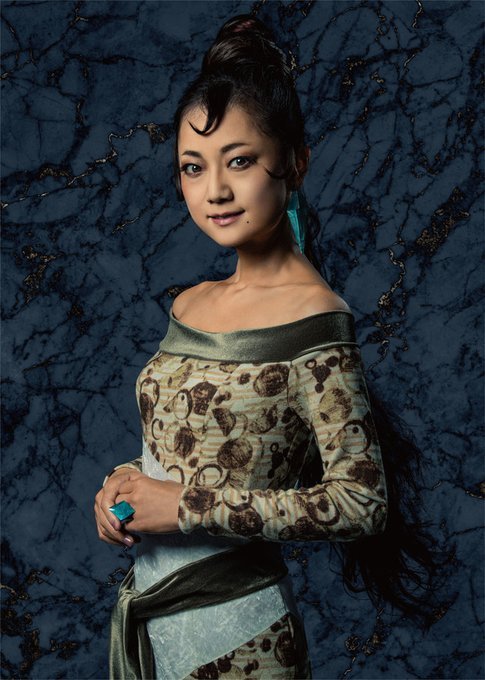
Tooyama Kyooko as Mercedes de Morcerf (メルセデス・ド・モルセール)
Murata Youjirou as Baron Danglars (ダングラール男爵) Tanaka Ryouko as Victoria de Danglars (ビクトリア・ド・ダングラール) Hosogai Kei as Chief Judge Gérard de Villefort (ジェラール・ド・ヴィルフォール主席判事)
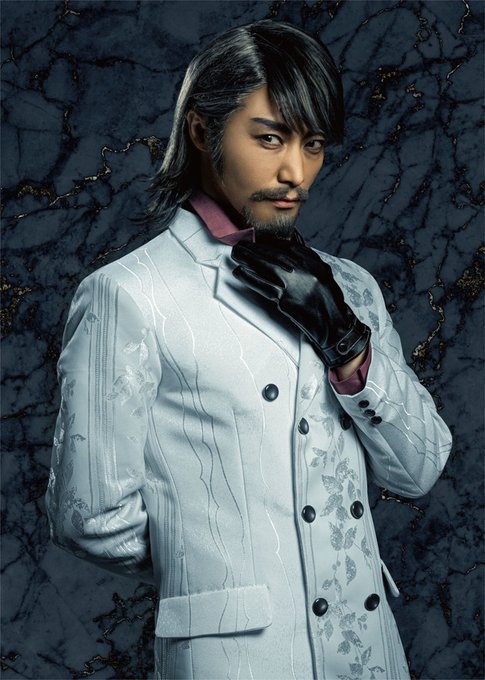
Tokuyama Hidenori as General Fernand de Morcerf (フェルナン・ド・モルセール将軍)
homepage twitter natalie
#巌窟王#gankutsuou#橋本祥平#hashimoto shouhei#谷口賢志#taniguchi masashi#前嶋曜#maejima you#小泉萌香#koizumi moeka#市川美織#ichikawa miori#小松準弥#komatsu junya#遊馬晃祐#asuma kousuke#大野紘幸#oono hiroyuki#田名部生来#tanabe miku#熊谷嶺#kumagai ryou#加藤靖久#katou yasuhisa#遠山景織子#tooyama kyooko#村田���二郎#murata youjirou#田中良子#tanaka ryouko
48 notes
·
View notes
Text
Oh my quiznak! Now that I posted that count of monte cristo song I'm thinking of about a Count of Monte Cristo AU with:
Shiro/Kuron as Edmond Dantes/The count
Adam as Mercedes
Allura as Haydee
Lotor as Fernand Mondego/de Morcef
Zendak as Danglars
Pidge as Eugenie Danglars
And, yes, I kown the book has like 15 other characters but this are the ones I have clear in my mind. Some of the characters are hard to place, Keith for example could either be Luigi Vampa, Maximiliam Morrel or Albert de Morcef. But that's up to you to choose.
22 notes
·
View notes
Photo
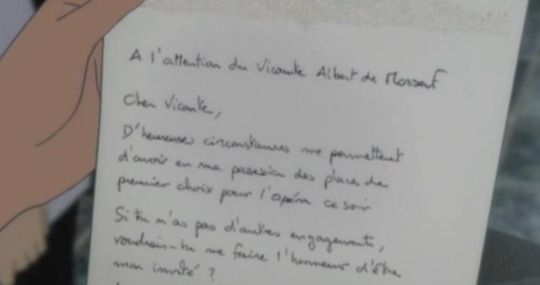
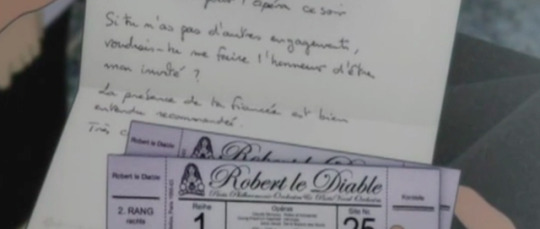
Aaaaah the letter is written in French! Im so happy with the amount of work and attention they put into this anime
Let’s see what’s written on the letter.....
“A l’attention du Vicomte Albert de Morcef
Cher Vicomte,
D’heureuses circonstances me permettent d’avoir en ma possession des places de premier choix pour l’opéra de ce soir. Si tu n’a pas d’autres engagements, voudrais-tu me faire l’honneur d’être mon invité ? La présence de ta fiancée est bien ententue recommandée.
Très cordialement,
Le Comte de Monte-Christo”
AAAAH SO MANY THINGS TO TALK ABOUT
1) IM HAVING A STROKE THE COUNT IS USING “TU” FOR ALBERT
2) The Count has a pretty handwriting
3) The play is called “Robert The Devil�� lmao
4) The Count got these tickets thanks to “fortunate circumstances” meaning he probably blackmailed or killed someone
35 notes
·
View notes
Text
The Count of Monte Cristo
by Alexandre Dumas

Published in 1884
1055 pages
Why I picked it up:
It’s been a remarkably long time since I read a gigantic classic novel like The Count of Monte Cristo. In fact, I think the last classic I read that was even close to the length of Monte Cristo was Moby Dick, which I picked up back in 2012.
There really is no reason that I avoid these tomes beside the fact that I am supremely lazy. Once I am within the world of a gigantic book like Monte Cristo, I usually cannot stop reading even through the unnecessarily long anecdotes about whale hunting techniques (see: Moby Dick, by Herman Melville) or cathedral infrastructure (see: Notre Dame, by Victor Hugo).
However, looking at these books can be extremely intimidating for me. I must admit that I fear commitment, yet at the same time I hate reading more than one book at once. So who wants to commit to a monogamous thousand-page relationship? It is for this very reason that I have always avoided literary behemoths like War and Peace or Arabian Nights. But this year I want to make a point of reading bigger books more often.
In short, I picked up The Count of Monte Cristo because it has been sitting on my shelf unread for a shamefully long time, due to the aforementioned phobia. I decided to use a fantastic adventure story--and the most famous tale of revenge of all time--to begin my journey into the world of gigantic books.
Summary:
Nearly everyone is familiar with the tale of The Count of Monte Cristo. This French novel follows the story of a young and successful sailor, Edmond Dantes. He is in the prime of his life--about to be named captain of the Pharaon, the beautiful boat upon which he works; and about to marry the love of his life, the Catalan Mercedes. Despite Dantes’ good nature and work ethic, those around him become jealous of his professional and romantic success and conspire to ruin his life.
This envious duo is comprised of the Pharaon’s supercargo, Danglars, and Fernand, the best friend and unrequited lover of Mercedes. Danglars is jealous of Dantes simply because of his youth, capability, and success. He also wants to be named captain of the Pharaon in Dantes’ place. Fernand hates Dantes for obvious reasons, for who could be friendly toward the enemy that has won the affections of the woman he loves?
While sitting and drinking with Edmond Dantes’ foolish neighbor, Gaspard Caderousse, Danglars writes a note--with his left hand, in order to disguise his handwriting--declaring Dantes a Bonapartist and claiming that he is responsible for delivering a treasonous letter from the island of Elba to Paris. Danglars throws the note aside. Fernand, however, takes the note and delivers it in order to seal Dantes’ fate. Caderousse, as dim-witted as he is drunk, believes this is all in jest and forgets the entire conversation.
The very next day, on the day of Edmond Dantes’ wedding feast, he is arrested in front of everyone and dragged to prison. There is a slight chance of Edmond realizing the freedom he deserves, until he meets Monsieur de Villefort. This royalist and prosecuting attorney who “would sacrifice anything to his ambition,” is perhaps the most guilty in the entire novel. What the reader is aware of (but tragically, Dantes is not) is that Monsieur de Villefort is constantly denouncing his own relationship with his father (Monsieur Noirtier, a Bonapartist) in order to maintain political favor. When Monsieur de Villefort discovers that the very letter Dantes carries is addressed to his father in Paris, he burns the letter and tells Dantes never to mention it again for his own safety. However, it is obvious that Monsieur de Villefort is only concerned with his own reputation being damaged by his father’s actions, and he simultaneously gives Dantes false hope for freedom, while denying him any chance of returning to his old life. He sentences Dantes to life at the Chateau d’If, a prison on a small island off the coast of Marseilles where there is no hope of escape.

So here we are left with Edmond Dantes wasting away in the prison of Chateau d’If. He demands to know why he has been arrested, but no information is given to him. When he is upon the point of starving himself in order to die rather than suffer another day imprisoned, he meets the Abbé Faria who is currently burrowing a tunnel through the wall of the prison in order to escape. The Abbé has been declared insane by the prison guards, but he is in fact a well-educated man, of a higher class than Edmond Dantes. The two become fast friends and forge a father-son relationship. The Abbé teaches Dantes the ways of the world, educating him in multiple languages and histories. The two hatch an escape plan together, but unfortunately it cannot come to fruition because the Abbé suffers from a fatal illness.
Before passing away, the Abbé tells Dantes of an immense treasure that he has inherited, hidden on the unassuming island of Monte Cristo. He declares that Edmond should escape Chateau d’If and find the treasures, as the Abbé is unable to inherit them himself. Devastated by the loss of his friend but thinking quickly, Dantes plants himself within the bag used to dispose of the Abbé’s body. He is consequently thrown into the sea and swims to freedom after fifteen years in prison.
After working with a group of smugglers for a number of months, Dantes finds his way to the island of Monte Cristo and discovers the treasure that the Abbé had promised to him. Dantes then returns to Marseilles a new man. After fifteen years in the Chateau d’If he has returned home to find that no one recognizes him, his father has long since passed away, and Mercedes has moved to Paris and reluctantly married Fernand after grieving the imprisonment and assumed death of her betrothed.
After disguising himself and speaking with Caderousse, Dantes confirms that Fernand, Danglars, and Monsieur de Villefort are responsible for his misfortunes. He also discovers that each of them in turn has been rewarded for such actions and found success in their lives. Monsieur de Villefort is now a magistrate and both Fernand and Danglars are now wealthy.
However, no one is as wealthy or interesting as the Count of Monte Cristo, the identity that Edmond Dantes assumes when he returns to France in order to seek his revenge. The count charms everyone he meets and impresses everyone with his grandeur and wealth. What the reader does not know is that the Count has carefully calculated an extremely detailed and diabolical plan to take down his enemies and allow them to suffer as he has.
We are introduced to a few new notable characters, including the son of Fernand and Mercedes, the viscount Albert de Morcef. The Count and Albert become fast friends, but we are left guessing as to whether or not Albert is simply a pawn in the Count’s game. Another important character is the son of Edmond’s former boss, Maximilian Morrel, who is in love with Villefort’s daughter, Valentine. The two star-crossed lovers (unable to be together because Valentine’s father has promised her hand in marriage to another man) give the reader soft respites from the intense, mysterious plot.
The Count of Monte Cristo systematically destroys each and every one of his enemies, maintaining his disguise as a mysterious Count from Malta. I will try not to spoil much of the story, as there are plenty of twists and turns to witness, which will make any reader marvel at the Count’s clever genius.
My Thoughts
I thoroughly enjoyed this book. Unlike most classics, I left with the feeling that most of the characters in the novel where multidimensional. All of them had their faults and all of them committed sins (especially the Count in his quest for revenge) but all of them also had those that they loved unconditionally. Perhaps the best example of this would be Madame de Villefort, who poisoned the people around her in order to ensure that her son would inherit a fortune and not become destitute. So those characters that we as readers are meant to look at as inexorably evil end up confusing us and making us wonder if there is a gray area.
At first, I was mildly disappointed when Dumas moved away from the more personable narrative which involved the reader closely following Edmond Dantes and all of his thoughts. However, after reading more than halfway through the book, I realized that the distance Dumas forges between his title character and the reader serves to enhance the mysterious experience of discovering the Count’s plot bit by bit. Because we are only given small glimpses of the Count’s feelings (in the way he reacts and responds to certain things other characters say, for instance) instead of being entirely within his head and at liberty to his thoughts, we are kept at complete distance from his plan for each of the men who have deceived and betrayed him. This creates an intentionally intense and suspenseful journey through the rest of the novel.
I was shocked when revelations about the identities of particular characters were revealed - most notably that of Monsieur de Villefort’s son, Benedetto (aka Andrea). I found myself initially wondering why Andrea had been included in the story. His and his father’s storyline seemed utterly pointless to me. However, both Dumas and the Count were undoubtedly way ahead of me, and I was shocked to discover that everyone chapter within this novel has a purpose and decidedly contributes to the Count’s plot for revenge against his enemies.
Did I feel slightly disappointed halfway through the novel? Absolutely. I thought that the story was going at an increasingly slow pace and I was losing excitement for the Count’s story. I also felt less connected to the Count as a character than I did to Edmond Dantes at the beginning of the novel. However, by the time certain plot points were revealed, I regained my enthusiasm and was grateful that I had slugged through seemingly boring chapters in order to understand the complexity of the story as a whole.
This novel is so long and detailed that I cannot write my opinion on each different character or scene without writing another 1,000 page book myself. Therefore I will touch on a few important points.
While reading this novel, I found myself most attached to two secondary characters. The first was the elderly invalid, Monsieur Noirtier. Despite the fact that he was a Bonapartist revolutionary and had once killed a man in a duel, I found his character to be undeniably sympathetic. I loved witnessing his special grandfather-granddaughter relationship with Valentine, and the ironic but immense power he had over all of the other characters despite his paralysis. I also thoroughly enjoyed watching him struggle to communicate with his family. Valentine’s ability to understand his thoughts serves to further demonstrate how devoted they are to one another.
The other character I loved most of all was not notably important to the main story, and it was Eugenie Danglars. Despite having despicable parents, Eugenie herself is sarcastic, strong, intelligent, and talented. Throughout the book she is described as beautiful but masculine, and she maintains her desire to live for art rather than for a man. Thus, she attempts to refuse to marry any man despite her father’s wishes. One of my favorite scenes in the entire novel was that of Eugenie’s escape with her musician friend, Louise. The two of them partially acknowledge the homoerotic undertones of their relationship when Eugenie cuts her hair short and dresses like a man in order to escape to Brussels:
“Indeed, you look adorable like that! One would say you were carrying me off!”
“And they would be right, pardieu!”
However long ago this book was written, Eugenie stuck out as an unapologetically feminist character. Willing to forgo wealth and status to pursue her art, she represents the feminine strength that most of the women throughout this novel are lacking.
There is, of course, the main theme which resounds throughout the novel which is that of receiving the fate to which you are due. Edmond Dantes had always been a virtuous man, and yet he suffered. His enemies were horrible people and yet they succeeded and became wealthy. The entire novel consists of exchanging their positions so that Dantes receives the happiness he is due and Danglars, Fernand, and Villefort receive the punishment they deserve. There is, thus, a certain overarching idea of fate, or the will of God.
And this idea of the Count acting as an instrument of God is precisely what I struggled most to accept about this novel. In Edmond’s own words, “I was but an agent, led on by an invisible and offended Diety, who chose not to withhold the fatal blow that I was destined to hurl” (page 1014). With this idea, Edmond Dantes forgoes any and all responsibility for his actions (which even he admits may have gone so far after the death of Villefort’s entire family). To say that he is merely a tool of fate used to rain down vengeance upon the guilty is to take the easy way out. I feel that this substituted what could have been a meaningful and introspective moment in which the Count realizes that due to his own resentment, he destroyed countless lives. I feel the novel would have had a better ending if Edmond Dantes had realized his faults and attempted to forgive his enemies, rather than throwing away his agency and claiming to act through the will of God. In my opinion, we cannot blame Karma, or fate, for all of our choices.
The story, however, was extremely gripping and filled with intrigue. For a 1,000+ page novel, I did not find myself bored very often. There were a few sections in the middle which dragged on a bit, but having pushed myself through these chapters, I thoroughly enjoyed every scene after page 500 and onward. Each character’s fate is so meticulously planned by the Count (or, in reality, Dumas) that there are clues to their ends hundreds of pages before the climax of the story. I found myself wondering what would happen to each character. I was attached to each and everyone of them (except, perhaps, Caderousse) whether or not they were good or evil. But of course, I loved Noirtier and Eugenie the most.
Favorite Quotes:
"'Really sir,' he observed, 'I see that in spite of the reputation you have acquired as a superior man, you look at everything from the material and vulgar view of society, beginning with man, and ending with man - that is to say, in the most restricted, most narrow view which it is possible for human understanding to embrace.'" - page 459
“Women, on the contrary, are rarely tormented with remorse; for the decision does not come from you - your misfortunes are generally imposed upon you, and your faults the results of others’ crimes.” - page 628
“’My reason?’ replied the young girl. ‘Well, it is not that the man is more ugly, more foolish, or more disagreeable than any other; no, M. Andrea Cavalcanti may appear to those who look at men’s faces and figures as a very good specimen of his kind. It is not, either, that my heart is less touched by him than any other; that would be a schoolgirl’s reason, which I consider quite beneath me. I actually love no one, sir; you know it, do you not? I do not then see why, without real necessity, I should encumber my life with a perpetual companion. Has not some sage said, “Nothing too much,” and another, “I carry all my effects with me”? I have been taught these two aphorisms in Latin and in Greek; one is, I believe, from Phaedrus, and the other from Bias. Well, my dear father, in the shipwreck of life, for life is an eternal shipwreck of our hopes, I cast into the sea my useless encumbrance, that is all, and I remain with my own will, disposed to live perfectly alone, and consequently perfectly free.” - page 882
“’I shall always find a resource; my books, my pencils, my piano, all the things which cost but little, and which I shall be able to procure, will remain my own.’” - page 884
“As usual, the oldest women were the most decorated, and the ugliest the most conspicuous. If there was a beautiful lily, or a sweet rose, you had to search for it, concealed in some corner behind a mother with a turban, or an aunt with a bird of paradise.” - page 892
“‘Great city,’ murmured he, inclining his head, and joining his hands as if in prayer, ‘less than six months have elapsed since first I entered thy gates. I believe that the spirit of God led my steps to thee and that he also enables me to quit thee in triumph; the secret cause of my presence within thy walls I have confided alone to him who only has had the power to read my heart. God only knows that I retire from thee without pride or hatred, but not without many regrets; he only knows that the power confided to me has never been made subservient to my personal good or to any useless cause. Oh, great city, it is in thy palpitating bosom thatI have found that which I sought; like a patient miner, I have dug deep into thy very entrails to root out evil thence. Now my work is accomplished, my mission terminated, now thou canst neither afford me pain nor pleasure. Adieu, Paris, adieu!’” - page 1009
“’The friends that we have lost do not repose in the bosom of the earth, but are buried deep in our hearts, and it has been thus ordained that we may always be accompanied by them. I have two friends, who in this way never depart from me; the one who gave me being, and the other who conferred knowledge and intelligence on me. Their spirits live in me. I consult them when doubtful, and if I ever do any good, it is due to their beneficent counsels.’” - page 1010
“There is neither happiness nor misery in the world; there is only the comparison of one state with another, nothing more. He who has felt the deepest grief is best able to experience supreme happiness. We must have felt what it is to die, Morrel, that we may appreciate the enjoyments of living.” - page 1055
“Never forget that until the day when God shall deign to reveal the future to man, all human wisdom is summed up in these two words, “Wait and hope.”’” - page 1055
0 notes